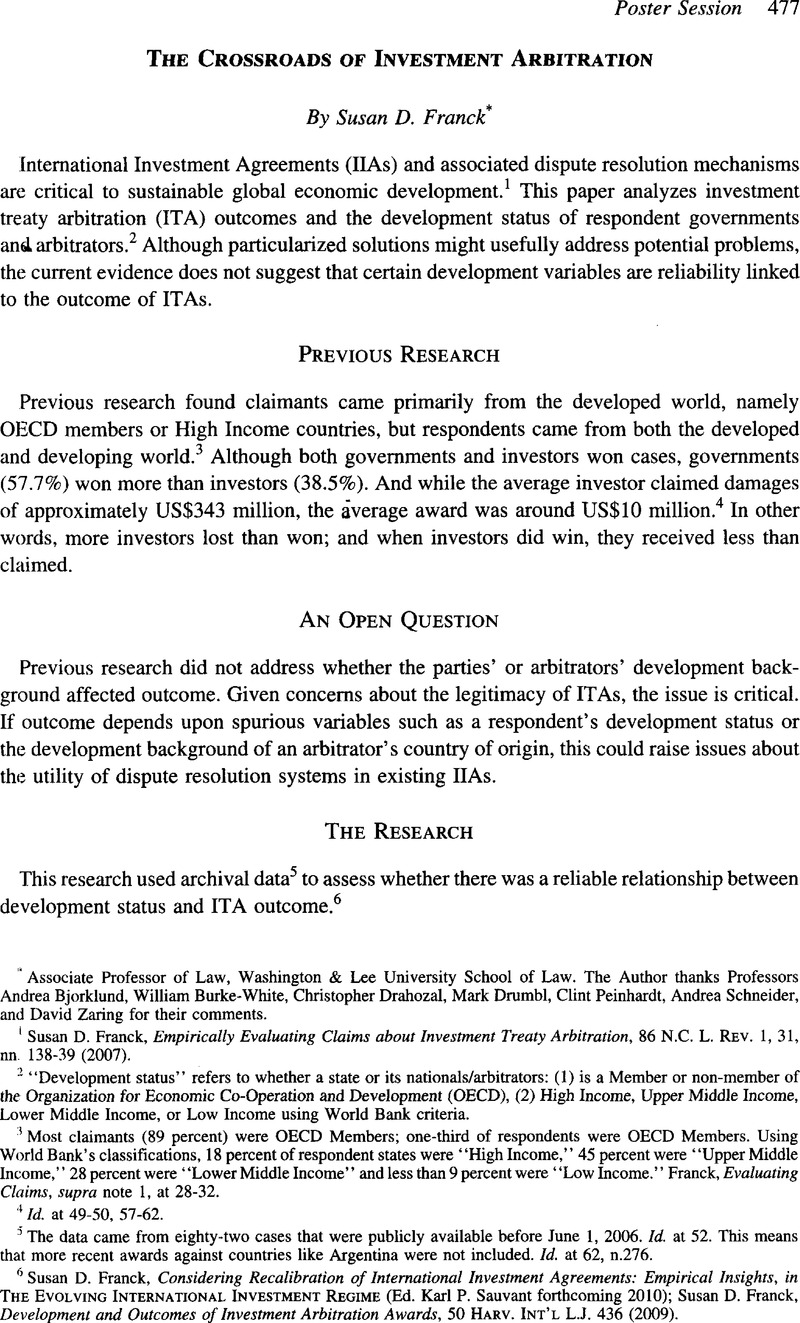No CrossRef data available.
Published online by Cambridge University Press: 28 February 2017

1 Franck, Susan D. Empirically Evaluating Claims about Investment Treaty Arbitration, 86 N. C. L. Rev. 1, 31, nn 138-39 (2007)Google Scholar.
2 “Development status” refers to whether a state or its nationals/arbitrators: (1) is a Member or non-member of the Organization for Economic Co-Operation and Development (Oecd), (2) High Income, Upper Middle Income, Lower Middle Income, or Low Income using World Bank criteria.
3 Most claimants (89 percent) were OECD Members; one-third of respondents were OECD Members. Using World Bank’s classifications, 18 percent of respondent states were “High Income,” 45 percent were “Upper Middle Income,” 28 percent were “Lower Middle Income” and less than 9 percent were “Low Income.” Franck, Evaluating Claims, supra note 1, at 28-32.
4 Id. at 49-50, 57-62.
5 The data came from eighty-two cases that were publicly available before lune 1, 2006. Id. at 52. This means that more recent awards against countries like Argentina were not included. Id. at 62, n.276.
6 Franck, Susan D. Considering Recalibration of International Investment Agreements: Empirical Insights, in The Evolving International Investment Regime (Ed. Sauvant, Karl P. forthcoming 2010)Google Scholar; Franck, Susan D. Development and Outcomes of Investment Arbitration Awards, 50 Harv. Int’l L. J. 436 (2009)Google Scholar.
7 Franck, Recalibration, supra note 6.
8 Franck, Development, supra note 6.
9 Id.